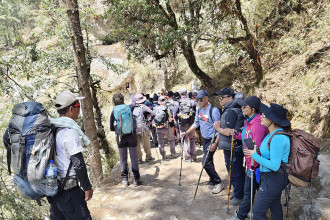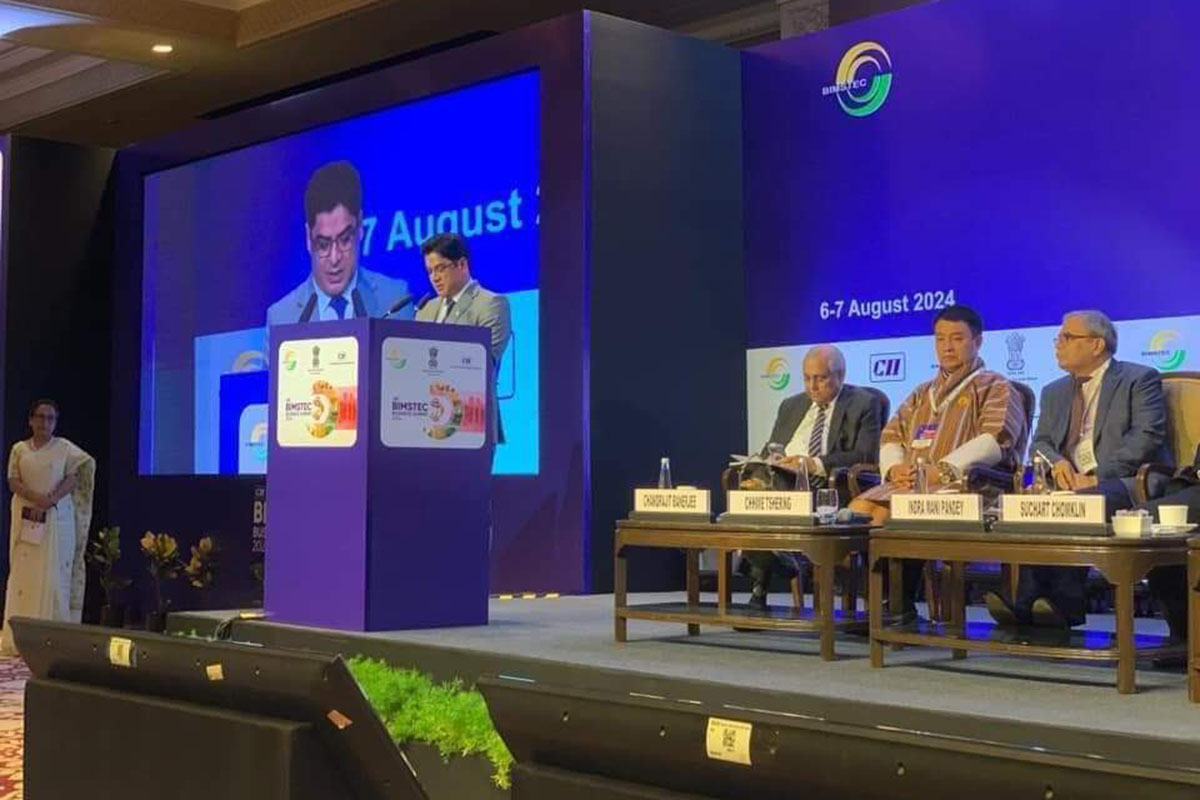
KATHMANDU: Minister for Industry, Commerce and Supplies, Damodar Bhandari, has urged private sector representatives from the Bay of Bengal Initiative for Multi-Sectoral Technical and Economic Cooperation (BIMSTEC) member nations to enhance commercial enterprise and investment in Nepal.
Speaking at the BIMSTEC Business Summit, hosted by India's Ministry of External Affairs in collaboration with the Confederation of Indian Industry (CII), Minister Bhandari called for support in regional value chains, trade integration, and increased cooperation in Nepal.
"This business summit reaffirms our unwavering commitment and shared goals to achieve regional peace, stability, and economic prosperity in the Bay of Bengal region through multi-dimensional partnerships, strong collaboration, mutual trust, and solidarity between public and private sector stakeholders," said Minister Bhandari.
He highlighted that the forum would enhance networking and business cooperation in trade, investment, tourism, and connectivity. "We must prioritise improved cooperation in trade, investment, sustainable agricultural practices, connectivity, energy and environmental security, and climate change adaptation and mitigation strategies. Our collective initiative within BIMSTEC has the power to transform the economic landscape of this diverse and vibrant region, promoting opportunities for shared growth and development," he added.
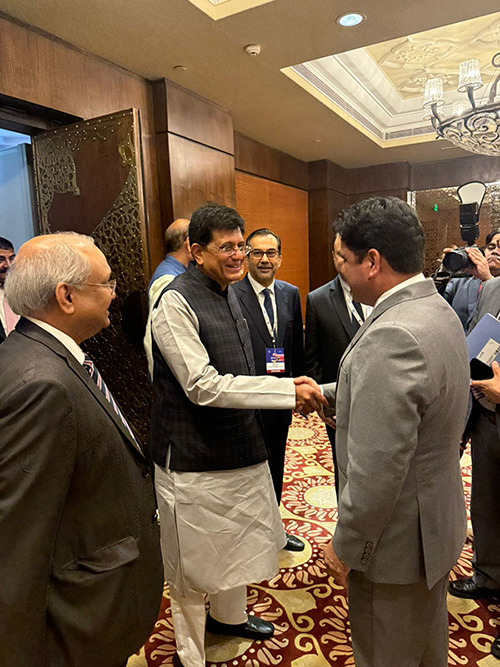
Minister Bhandari emphasised that strong regional cooperation could unlock the full potential of the economy, create jobs, and improve living standards. Reflecting on the Nepal Investment Summit held in Kathmandu a few months ago, he noted that investment and business processes had been streamlined and simplified.
"Technological developments, changing business dynamics, and evolving consumer preferences have all contributed to rapid changes in the global economic landscape. Regional trade and investment agreements are critical to addressing these changes effectively. They will continue to serve as a foundation for innovation and creating a favourable environment," said Bhandari.
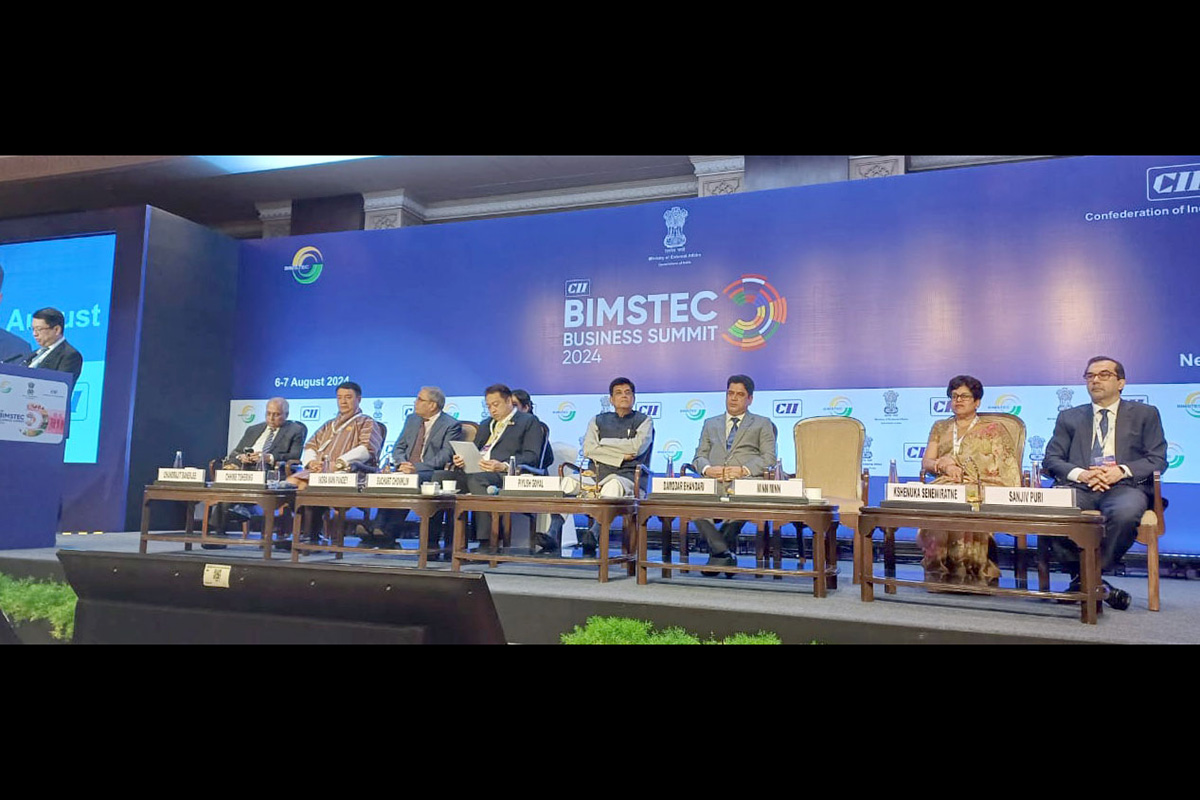
He pointed out that Nepal's abundant natural resources, strategic location, diverse cultural heritage, favourable climate, and increasingly competitive human capital present significant opportunities for investment and business. The Government of Nepal has implemented continuous policy reforms to promote trade, investment, and connectivity with neighbouring and foreign countries.
Minister Bhandari stated that the BIMSTEC Business Summit would yield concrete results in market access, value chain integration, private sector growth, and increased public-private partnerships. Acknowledging Nepal's challenges as a landlocked country, he expressed appreciation for the continuous support and solidarity from neighbouring and friendly countries regarding transit rights in foreign trade. "We hope BIMSTEC will pay special attention to small and landlocked economies," he said.
On behalf of the Government of Nepal, Minister Bhandari committed to productive, people-centred, and work-oriented cooperation within BIMSTEC to achieve sustainable development and prosperity in the Bay of Bengal region. "We envision the BIMSTEC region as economically advanced, physically integrated, technologically innovative, ecologically resilient, and socio-culturally open to diversity," he concluded.
The BIMSTEC Business Summit commenced on Tuesday.
By RSS



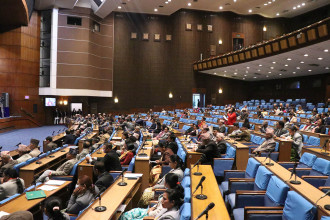
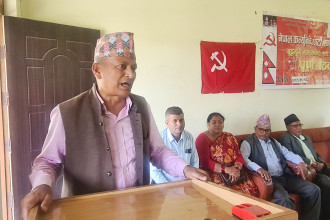
-1745308675.jpg)
